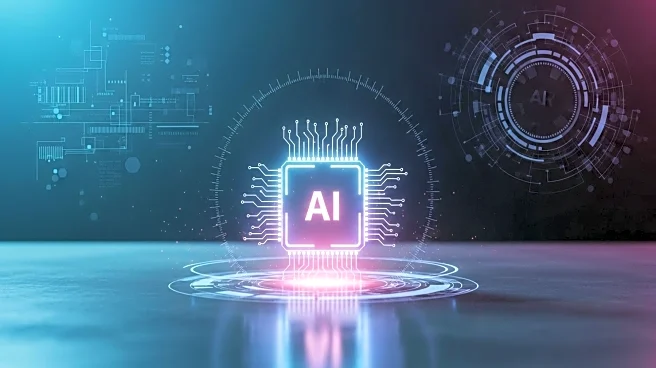What is the story about?
What's Happening?
Akshara Naik Lopez, a senior analyst at Forrester, discussed the transformative impact of AI-enabled platforms on HR strategy during a recent HR Executive webinar. She emphasized that these platforms represent more than just an upgrade from traditional HR systems, as they simulate human intelligence to make decisions, analyze resumes, rank candidates, and predict job fit using historical data. This shift is critical for HR leaders, as AI tools can handle tasks that were previously the domain of human judgment. Naik Lopez also highlighted the importance of unified platforms over siloed systems, as AI models perform better with high-quality data. Ethical challenges are a significant concern, as AI algorithms can replicate and amplify human biases present in historical data, potentially leading to discriminatory hiring practices and unfair evaluations.
Why It's Important?
The integration of AI into HR strategy is significant as it offers organizations a competitive edge in talent management by enhancing decision-making processes. However, it also raises ethical concerns, as AI can perpetuate biases if not implemented thoughtfully. HR leaders must proactively build ethical frameworks to avoid legal issues related to discriminatory outcomes and privacy violations. The shift to AI-enabled platforms requires HR professionals to invest in skills that AI cannot replicate, such as critical thinking and emotional intelligence, to complement AI functionality. This transformation is crucial for strategic workforce development and maintaining a human-centric approach in HR practices.
What's Next?
HR leaders are encouraged to focus on strategic integration of AI by assessing business value and potential risks associated with AI initiatives. They must ensure data quality and security to support AI effectiveness and transform HR from reactive administration to predictive strategic partnership. Organizations need to maintain a human-centric approach, using AI to augment human capabilities rather than replace them. This involves freeing employees from routine tasks to focus on higher-value contributions, while preserving core values and commitment to human development.
Beyond the Headlines
The ethical implications of AI in HR are profound, as AI's ability to replicate biases can lead to significant cultural and legal challenges. Organizations must navigate evolving regulatory environments, such as the EU AI Act and New York City's Automated Employment Decision Tools Law, to ensure compliance and transparency. The successful implementation of AI in HR requires leadership commitment to creating meaningful, productive, and equitable work experiences, rather than merely automating existing processes.















